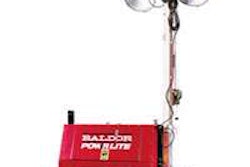Common sense
By Kirk Landers
Could there be hope for America yet?
In May, one of the oldest, most tried and true scams for currying public favor — “free money” for voters — was soundly rejected by the news media and most political leaders.
There was plenty of flash when Senator John McCain (R-AZ), the presumptive Republican nominee for President, proposed a federal fuel-tax holiday for the American motorists from Memorial Day to Labor Day. Soon thereafter, Senator Hilary Clinton (D-NY) tried to breathe new life into her campaign for the Democratic nomination for President by endorsing the fuel-tax holiday concept, too.
McCain’s proposal would have made up the Highway Trust Fund shortfall with “other revenues.” Translation: it would be a microscopic dot in our $9 trillion national debt.
Clinton’s proposal was just as slippery: she would have plugged the hole in the trust fund by hitting oil companies with a special tax. Clinton, a long-time friend of the public works industry, knew very well that prices at the pump would not have declined when the fuel tax disappeared, and that the oil companies would simply be paying their special taxes with the money that would have ordinarily been collected as a fuel tax. Translation: what’s the point?
Although road industry leaders and lobbyists lost plenty of sleep over the issue for several days, in the end, the idea got contemptuous reviews in the mainstream news media and was rejected by a broad cross section of members of the U.S. House and Senate.
Who would ever have thought that the national whine about taxes would be interrupted by common sense?
Are we getting smarter as an electorate, or was the proposed benefit — about $28 per average driver, according to one estimate — just too small? Hard to say, but the event triggered memories of Ronald Reagan’s first presidential campaign and his familiar refrain, “There you go again, tax and spend, tax and spend.” With those words, Reagan snuffed out a decades-long strategy of Democrats to offer big government programs to solve perceived national problems.
In the fuel-tax holiday melodrama, we may have seen the first public rejection of solving perceived national problems by simply cutting taxes and accumulating debt.
Had the fuel-tax holiday proposal gained momentum, it would have spelled the end of the federal highway program. The reverse is not true, however: many of the politicians who rejected the holiday will not be easily convinced to increase the federal fuel tax when debate begins in the next Congress.
Those of us working in the road industry have an important responsibility in that debate because we are among the very few citizens in America who know what it takes to keep roads and bridges viable. During the election campaigns and in the early months of the next Congress, our individual and collective responsibility is to share our knowledge with the people who will create and pass the next Transportation Reauthorization bill so that this recent outburst of common sense can take root and grow in the next Congressional cycle. BR









